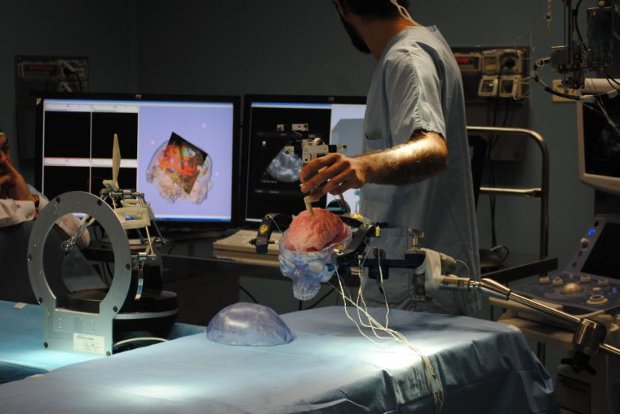Robotic neurosurgery multiplies surgeon ‘hands’
November 30, 2011
EU-funded researchers from Germany, Italy, Israel and the UK have achieved a breakthrough in robotic neurosurgery. The ROBOCAST project provides 13 degrees (types) of movement, compared to the four available to human hands during minimally invasive surgery. It also provides “haptic feedback,” physical cues that allow surgeons to assess tissue and perceive the amount of force applied during surgery.
The robot has performed accurate keyhole neurosurgery on dummies, and when ready for humans, could treat tumors and conditions such as epilepsy and Parkinson’s disease.
A follow-up project, called ACTIVE, is beginning parallel research into robotic neurosurgery for patients who are to remain awake during surgery. Up to three robots (two equipped with sensors and end-effectors to operate and one to actively smooth head movements) are expected to cooperate and assist the surgeon.
